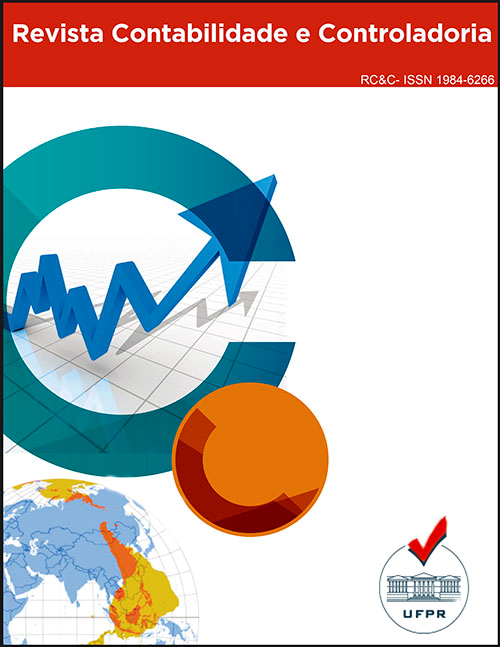A QUALITATIVE ANALYSIS OF SOCIAL - INTERACTIONIST OF VYGOTSKY THE PERSPECTIVE IN ACCOUNTING TEACHING
DOI:
https://doi.org/10.5380/rcc.v1i2.16239Palabras clave:
Interacionismo. Didática. Educação Contábil. Conhecimento.Resumen
From this assumption, it must reflect the teaching of accounting in a new educational vision, based on a form of learning not more technical or transfer of knowledge. But, under a theory which is not a teacher's being passed on their knowledge, but an instigator of their student in learning to learn, the Social-interactionist theory of Vygotsky. Was used as an objective of this study highlight the presence of socio-interactionism of Vygotsky in the construction of knowledge promoted by teachers of science courses in the accounting of Paraíba and Pernambuco. Reflected on the contribution of Lev Semenovich Vygotsky, focusing on the assumptions of cultural items as essential to the construction of personal knowledge. For this study, it's hand-launched inductive method, and the types of research-based literature search and classified as qualitative, because it sought to describe the experimental study. It was concluded that the teacher, active agent promoting the knowledge, aims to build a "constructive environment" for education, heralded by Vygotsky, this environment which is really aware of the importance of "teacher-learner" with strategies and clear procedures, using group work in teaching and having a relationship of education.
Descargas
Cómo citar
Número
Sección
Licencia
Derechos de autor 1969 Revista Contabilidade e Controladoria - RC&C

Esta obra está bajo una licencia internacional Creative Commons Atribución-NoComercial-SinDerivadas 4.0.
Los trabajos publicados en la RC&C. Revista de Contabilidad y Controladoria están sujetos a los siguientes términos:
1.1. La RC&C. Revista Contabilidad & Controladoria, a través del Programa de Posgrado en Contabilidad del Departamento de Contabilidad – Sector de Ciencias Sociales Aplicadas – Universidad Federal de Paraná, retiene los derechos de propiedad (derechos de autor) de los trabajos publicados y incentiva y permite su reutilización bajo la Licencia Creative Commons 4.0 CC Attribution-NonCommercial-ShareAlike 4.0, para que puedan ser copiados, utilizados, difundidos, transmitidos y exhibidos públicamente, siempre que:
1.1.a. Se cite la autoría y la fuente original de la publicación (revista, editorial, URL y DOI del trabajo).
1.1.b. No se utilicen con fines comerciales o lucrativos.
1.1.c. Se mencione la existencia y las especificaciones de esta licencia de uso.
1.2. La publicación asignará a cada artículo un Identificador de Objeto Digital (DOI).









